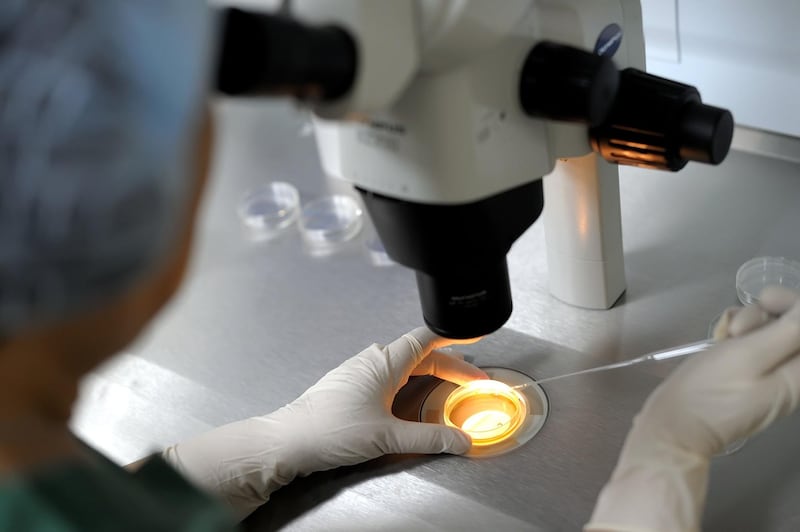A hospital that stores eggs and sperm said it has seen a noticeable number of single young people freezes their eggs and sperm, as they put off starting families due to medical treatment and also delay married life due to financial reasons.
HealthPlus Fertility Centre in Abu Dhabi said it has seen 15 single men and women seek fertility preservation in the past three months.
The patients, mostly Emiratis, were at risk of infertility.
Fertility physicians said that they preserved their eggs and sperms using the latest technology “which gave them hope to have children after marriage in the future.”
One patient was a 26-year-old Arab woman with breast cancer and required chemotherapy and radiotherapy, which would affect the ability to conceive in future.
Another patient he said, was a young unmarried Emirati female in her mid-30s who was pursuing her postgraduate studies abroad.
"Her medical examination showed that her eggs production has started to decline. Therefore, she decided to preserve a number of eggs in the centre in the hope of future childbearing. 16 eggs have actually been preserved for her," said Dr Elsamawal El Hakim, consultant reproductive medicine,
“During the past two years, we have noticed many young people who required medical intervention to preserve their eggs and sperms for reproduction in the future."
He said in every case it is "a preventive measure due to their need to undergo treatments that may lead to the destruction of cells producing eggs and sperms, as well as cases of delayed marriage which is accompanied by a decrease in egg production.”
“Because of the availability of such advanced techniques, the pregnancy is not impossible for young people who suffer from intractable diseases before marriage, or those who are late in marriage for many reasons, noting that the preservation of their samples represents a new hope for these people to have children in the future,” Dr El Hakim said.
“There are many intractable diseases, including cancers, which cause difficulty to have children when receiving their treatment courses due to the adverse effects of their medicines on the production of eggs and sperms.”






